Understanding the Purpose of Postpartum Coach Training
Becoming a mother is one of the most transformative experiences in a woman’s life. Yet, it often comes with emotional, physical, and mental adjustments that can feel overwhelming. This is where postpartum coach training steps in—equipping compassionate professionals with the tools to guide new mothers through this delicate transition. Postpartum coaches are trained to support mothers as they navigate identity changes, hormonal shifts, and emotional fluctuations. Unlike traditional healthcare providers, postpartum coaches focus on the holistic experience of motherhood—addressing both inner healing and lifestyle balance. They help mothers rediscover their confidence, self-worth, and sense of purpose. The growing demand for postpartum coaches worldwide highlights a collective recognition that mothers need more than medical attention—they need understanding, emotional guidance, and empowerment.
Core Principles Behind Postpartum Coaching
The foundation of effective postpartum coaching lies in empowerment and compassion. Every mother deserves to feel seen, heard, and supported as she transitions into her new role. A trained postpartum coach understands that this phase is not just about recovery—it’s about transformation. The principles of postpartum coaching revolve around emotional awareness, self-compassion, and resilience. Coaches are trained to help mothers reframe challenges into opportunities for growth. They use evidence-based approaches that integrate mindfulness, cognitive awareness, and emotional regulation. More importantly, they create a safe space where mothers can explore their feelings without fear of judgment. Through these guiding principles, postpartum coaching becomes a bridge toward healing and renewal—allowing mothers to embrace both their vulnerabilities and strengths.
Key Components of a Comprehensive Postpartum Coach Training Program
A well-structured postpartum coach training program blends science with heart-centered practice. Participants learn not just theories but also actionable tools to support mothers effectively. The training typically covers core topics such as maternal psychology, emotional resilience, and postpartum health. It also includes techniques for helping mothers adjust to new roles and manage lifestyle shifts. A holistic curriculum may include:
- Understanding the physiological and emotional aspects of postpartum changes
- Techniques for supporting sleep, nutrition, and self-care routines
- Strategies for building emotional stability and stress management
- Tools for identity transformation and personal growth
- Mindfulness and neuroscience-based coaching practices
Each component ensures that aspiring coaches gain the knowledge and sensitivity required to nurture mothers authentically. With a balanced approach between practical skills and emotional intelligence, postpartum coach training prepares individuals to create real, lasting impact in the lives of new mothers.
Skills Every Postpartum Coach Must Master
Postpartum coaches need a unique combination of interpersonal and psychological skills to make a difference. They must know how to listen deeply, communicate clearly, and hold space with empathy. One of the most essential skills is active listening—allowing mothers to express themselves freely without interruption or judgment. Equally important is emotional regulation, helping clients identify triggers and process their emotions safely. A postpartum coach also guides mothers toward self-awareness and self-compassion, helping them rediscover their strengths after childbirth.
Key skills include:
- Practicing non-judgmental communication
- Recognizing emotional patterns and guiding release
- Creating personalized postpartum care plans
- Encouraging self-care routines and healthy boundaries
- Maintaining professional ethics and confidentiality
These skills ensure that postpartum coaches not only provide guidance but also empower mothers to trust their own instincts. By mastering these capabilities, coaches become compassionate partners in a mother’s healing journey.
Certification and Accreditation Pathways
Earning a certification through a credible postpartum coach training program enhances both credibility and competence. Certification programs ensure that trainees meet industry standards and acquire evidence-based techniques. Recognized postpartum coaching programs often include both theoretical modules and hands-on training. Aspiring coaches should look for programs accredited by reputable wellness or coaching institutions. It’s important to consider factors such as duration, format (online or hybrid), and mentorship opportunities.
Accredited programs typically cover:
- Maternal well-being and psychology
- Communication and coaching methodology
- Practical sessions and supervised coaching hours
- Ethics, boundaries, and professional standards
Choosing the right certification sets a strong foundation for career growth. It also reassures clients that their coach has undergone rigorous preparation to offer safe and effective postpartum support.
The Transformative Impact of Postpartum Coach Training
Postpartum coach training does more than create professionals—it nurtures advocates for maternal wellness. Certified postpartum coaches contribute to building healthier families and stronger communities. They help mothers embrace motherhood not as a loss of identity, but as a new chapter of growth and strength. Their work fosters a shift in the cultural narrative—moving away from “bouncing back” to “becoming whole.”
Through postpartum coaching, mothers learn to:
- Reconnect with their inner selves
- Overcome emotional struggles with confidence
- Strengthen their relationships with their partners and families
- Rebuild routines that promote self-care and mental health
These outcomes ripple beyond the individual. When a mother feels supported and empowered, her family thrives, and so does her community.
Building a Career as a Certified Postpartum Coach
Postpartum coach training opens the door to diverse and fulfilling career paths. Many certified coaches choose to establish private practices, offering one-on-one sessions to new mothers. Others collaborate with healthcare professionals, hospitals, or wellness centers. Some develop group programs, workshops, or online courses to reach a wider audience. With the growing demand for maternal wellness experts, the opportunities in this field are expanding.
To build a successful career as a postpartum coach:
- Develop a clear coaching niche and service focus
- Create personalized postpartum support programs
- Network with wellness practitioners and maternal health organizations
- Use social media and content marketing to share expertise
- Continue education through advanced workshops and neuroscience-based training
By blending passion, professionalism, and purpose, postpartum coaches can create sustainable businesses while making a profound difference in maternal care.
Integrating Neuroscience and Emotional Intelligence in Coaching
A remarkable aspect of postpartum coach training is the integration of neuroscience and emotional intelligence. Neuroscience helps coaches understand the brain’s changes during the postpartum phase—especially how hormones affect mood, cognition, and emotional regulation. Emotional intelligence, on the other hand, enhances the coach’s ability to connect empathetically and respond with understanding. Together, they form a powerful combination that strengthens the coaching process.
Through neuroscience-informed techniques, postpartum coaches learn to:
- Recognize cognitive and emotional shifts during postpartum recovery
- Apply mindfulness and grounding techniques
- Help mothers regulate stress responses
- Encourage neural rewiring through positive thinking and gratitude practices
When combined with emotional intelligence, these methods create a supportive, nonjudgmental space that fosters real transformation.
Frequently Asked Questions (FAQ)
Who can enroll in postpartum coach training?
Anyone passionate about supporting mothers—whether from a coaching, healthcare, or counseling background—can enroll.
How long does it take to complete the certification?
Programs vary, but most take between three to six months, depending on their intensity and structure.
Do I need a background in healthcare or psychology?
Not necessarily. While helpful, it’s not a requirement. Most programs provide foundational knowledge for those new to the field.
What’s the difference between a postpartum coach and a therapist?
Therapists address clinical mental health issues, while postpartum coaches focus on guidance, emotional support, and lifestyle adjustment.
Can postpartum coaching be done virtually?
Yes, many coaches work online, allowing them to support mothers from anywhere in the world.
How does certification help build trust with clients?
Certification shows that a coach has met professional standards and is equipped with the right tools to guide postpartum mothers safely.
What ongoing education opportunities exist after certification?
Many institutions offer advanced modules in neuroscience, trauma-informed coaching, and maternal health for continuous growth.
Empowering the Future of Postpartum Care Through Coaching
Postpartum coaching represents the future of holistic maternal support. As awareness grows, more professionals are recognizing the need for emotional guidance during the transition into motherhood. The field continues to evolve with advancements in neuroscience, mental wellness, and compassionate communication. Postpartum coaches are not only helping mothers recover but also helping them rediscover joy and fulfillment in their new roles.
Takeaway
Postpartum coach training is more than a career path—it’s a calling to support mothers through one of life’s most profound transitions. By blending empathy, science, and structured coaching methods, certified postpartum coaches become catalysts for healing and empowerment. Whether you’re an aspiring coach or a wellness professional, this training equips you with the skills to nurture mothers and families toward renewed strength, clarity, and connection.











